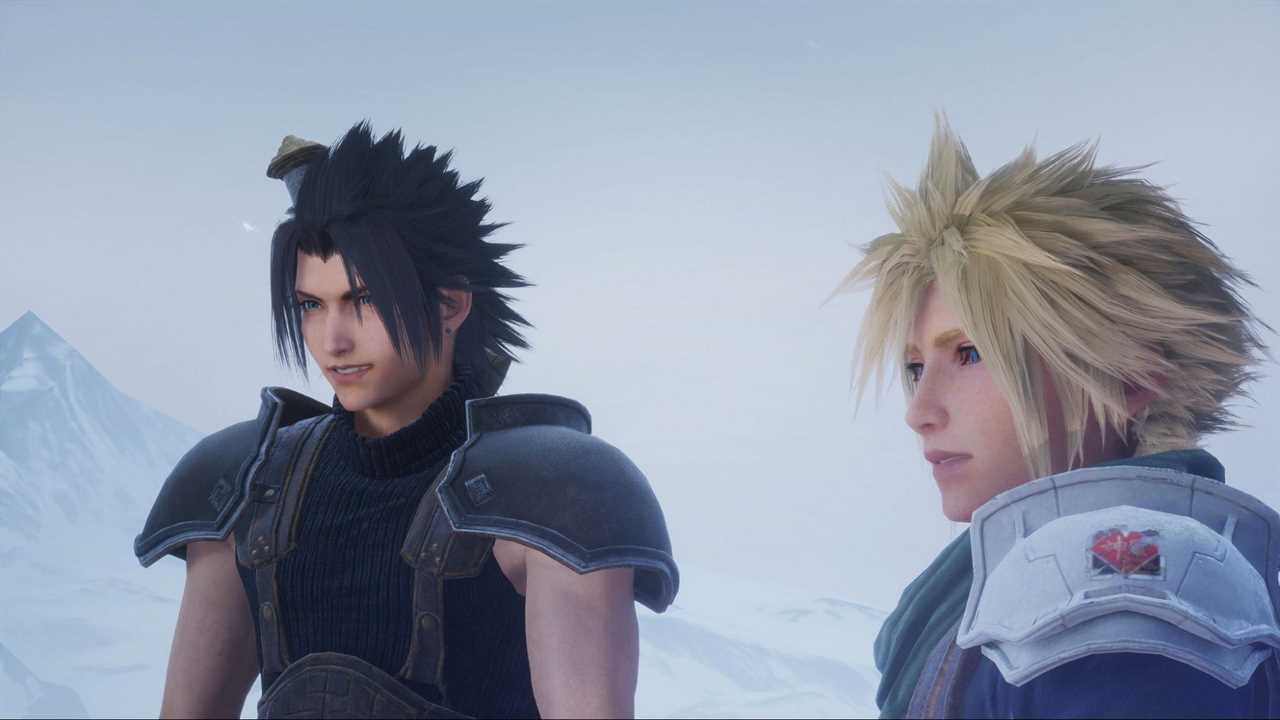THOSE who have played the original Final Fantasy 7 know what grinding looks like.
Walking back and forth for encounters, then waiting through that battle transition that takes a little bit too long, to click your move and one shot the enemy.

Zack and Cloud before two became one.
However, this process doesn’t always feel tedious; when you get swept up in a gripping story, you don’t mind the grind.
Crisis Core is not that. Unlike the original FF7, which had its confusing parts, the story is almost incomprehensible here.
What’s more, it’s drawn out with numerous optional — but not really — missions.
If you take a JRPG like Pokémon, the path may often feel linear, but it’s filled with so many battles, and monsters to catch that with each step you feel a sense of progress.
Here the progress is all numerical. What chapter are you on? How much of that chapter is left? What percentage of missions have you finished?
It’s not as satisfying when you don’t have the same sense of gains and progress as you do in many other JRPGs.
We’ve long awaited more background to Zack Fair, the member of SOLDIER whose memories got mixed up with Cloud’s.
However, he isn’t given much depth. He’s naive, try-hard, someone who just wants to help out, but there’s no hopes, dreams, or vulnerability.
It’s a prequel to FF7’s main story, so you should know that before diving in, because the whole story here is figuring out why Sephiroth is such a grumpy goose.
Crisis Core clearly wanted to introduce new and interesting monsters to fight, but doesn’t add the context that makes the story make sense.
It’s all well and good to say that the evil Shinra scientist invented these beasts, but why they’re allowed to roam the city without turning public opinion against the company is bizarre.
While we know from FF7 that Zack is Aerith’s boyfriend here, that’s never clearly set out. There’s no intimacy between them, and interactions feel forced.
Many story scenes are hidden behind a slot machine, like the one used in Cait Sith’s Limit Break in the main game.
However, triple-sevens don’t let you one-shot the final boss like Cait Sith’s slots do; instead, you get a single level up.
Fans of FF7’s story won’t get what they’re looking for here. More on Cloud’s background, and who Zack really was.
The fact that the original Crisis Core was on PSP is evident here. Chapters are short, but due to the slot machine rolls, optional missions feel necessary to level up.
Combat has a new twist which makes the battling fun at least. You can Fuse Materia for early powerful attacks, and mix attack slots with stat buffing effects.
Overall, the fighting is more accessible for modern day audiences, and bridges the transition from handheld to home console.
The remaster probably appeals more than the original, as the visuals are right up to date with the modern standards, and the voice acting as well.
However, the old issues aren’t out of date. It’s far from the prequel that fans wanted, but if you’re as immersed in the world of Midgar as Zack is, then you’ll still have some fun.
Written by Dave Aubrey and Georgina Young on behalf of GLHF.






